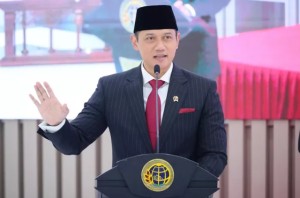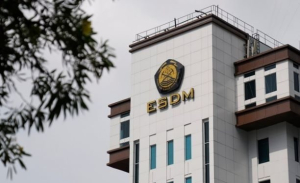RI urges climate-resilient urban financing, global collaboration at BRICS Forum
Indonesia’s Coordinating Minister for Infrastructure and Regional Development, Agus Harimurti Yudhoyono (AHY), has called for the establishment of targeted financing mechanisms and stronger international cooperation to build climate-resilient cities.
Speaking at the “Housing and Urban Agenda: Strategic Priorities” thematic session during the BRICS Urbanization Forum held at the Itamaraty Palace in Brasília, Minister AHY underscored the financing gap for vulnerable populations most affected by climate risks.
"We must face a difficult reality. Those most vulnerable to climate risks are often the least able to access formal housing finance. Without targeted support, they will remain marginalized and at risk," AHY said on Tuesday, June 23, 2025.
In response, Indonesia − alongside its partners − is developing a collaborative financing platform to pool resources from the national and local governments as well as the private sector. The initiative aims to fund climate-adaptive housing projects, particularly for low-income and at-risk communities.
"This platform will combine national, provincial, and private resources. The funding will support green renovations, microloans, inclusive zoning incentives, and the use of climate-resilient local building materials," AHY explained.
He emphasized that the main priority is to reach the most vulnerable households and ensure no one is left behind in the transition toward green development.
Beyond domestic efforts, AHY also stressed the need for enhanced global partnerships, noting that the scale of the climate challenge cannot be met by public funding alone. He cited ongoing collaborations with the World Bank and Asian Development Bank (ADB) in supporting Indonesia's climate housing initiatives.
AHY extended an invitation to the New Development Bank (NDB) to play a role in financing, knowledge exchange, and the formation of urban resilience standards across BRICS nations and their partners.
"We have the opportunity to align subsidy frameworks, share technological tools, and set joint standards that reflect our commitment to the Paris Agreement, the Sustainable Development Goals (SDGs), and the New Urban Agenda," he stated.
AHY affirmed that housing must be viewed not only as a basic need but also as a cornerstone for inclusive growth and urban resilience.
"Indonesia is ready to work alongside BRICS partners to scale best practices, exchange practical policy tools, and lead by example in building cities that leave no one behind," he concluded.
Already have an account? Sign In
-
Start reading
Freemium
-
Monthly Subscription
20% OFF$29.75
$37.19/MonthCancel anytime
This offer is open to all new subscribers!
Subscribe now -
Yearly Subscription
33% OFF$228.13
$340.5/YearCancel anytime
This offer is open to all new subscribers!
Subscribe now





